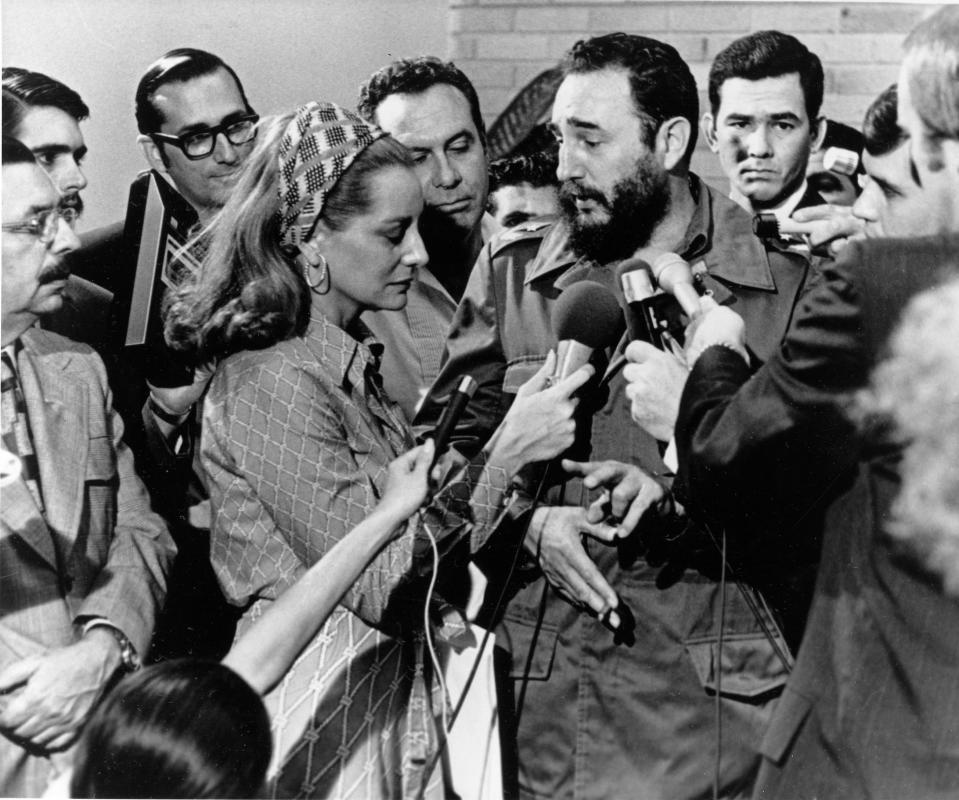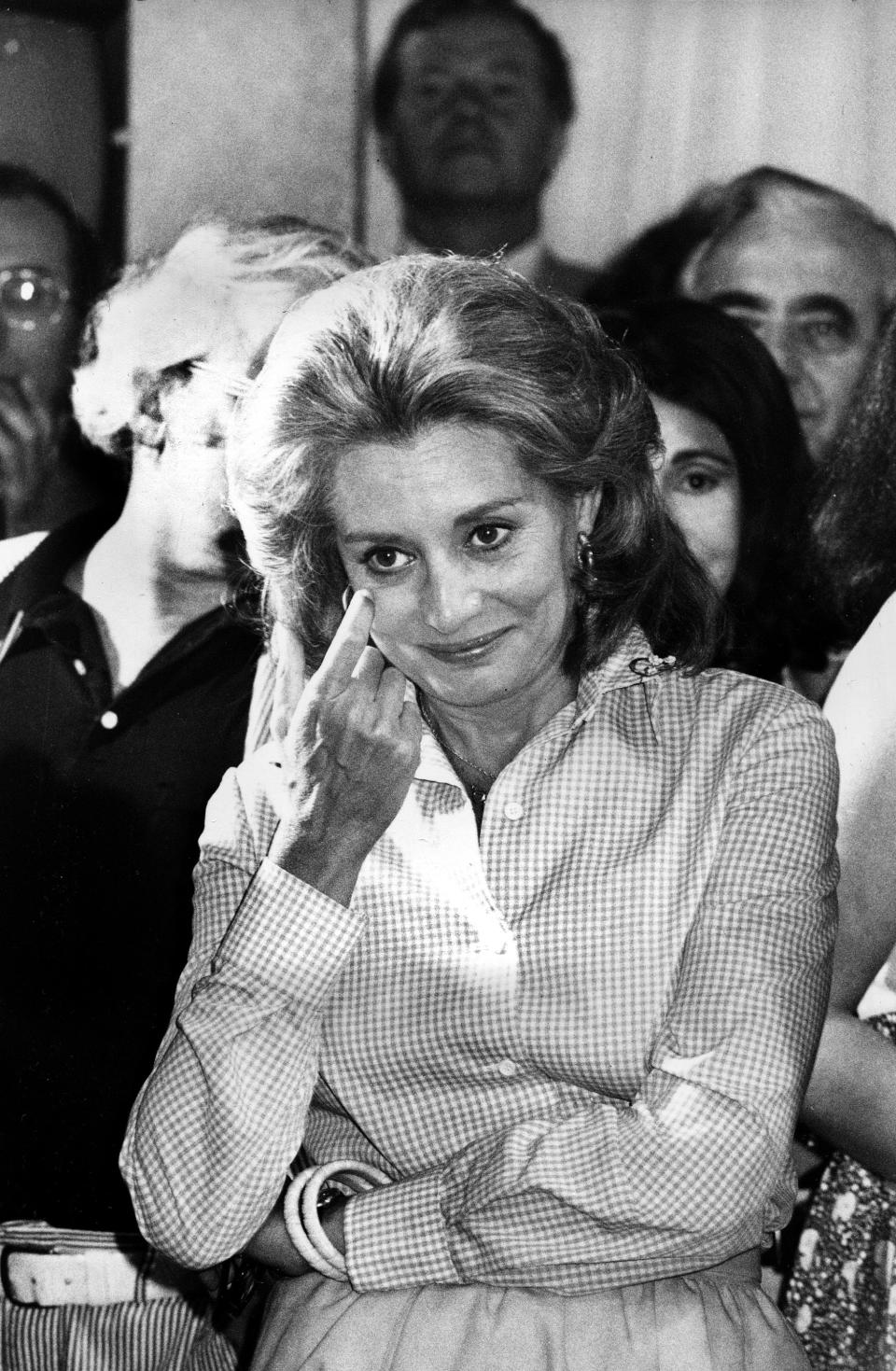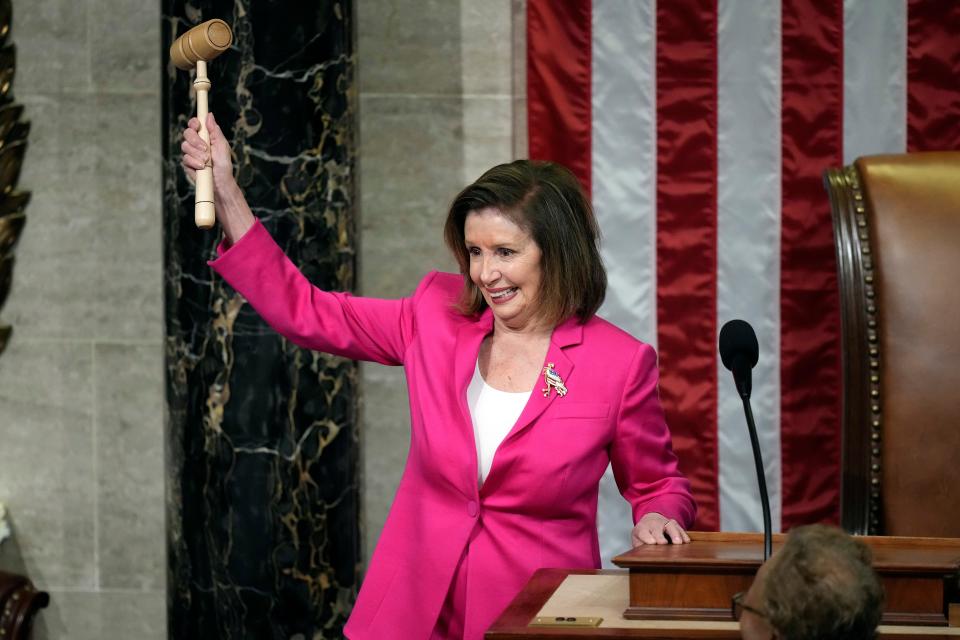Legacy: Barbara Walters, RBG, Nancy Pelosi and the badass women of the Silent Generation
- Oops!Something went wrong.Please try again later.
- Oops!Something went wrong.Please try again later.
Endlessly curious, fiercely competitive and sometimes ruthless, Barbara Walters became the most celebrated interviewer on television of her era – against the odds.
It was only in 1974, not ancient history, that Walters became the first female co-host of a morning show, and one of such second-class status that her male co-host was guaranteed the first three questions in an interview before Walters was allowed to speak. Two years later, she became the first woman to co-host an evening network news show, an unhappy experience and one she feared at the time might doom her career.
It didn’t, of course. Instead of the broadcasting business defeating her, she helped transform it.
Appreciation: Always wanted more, and always got it: Commemorating career of TV trailblazer Barbara Walters
The death of Barbara Walters last week at age 93 underscores just how breathtaking that transformation has been, a fact that’s easy to forget at a time no broadcast network would seriously consider fielding an all-male lineup on its morning show. Women now headline evening news shows, lead network news divisions, and launch startups that are expanding the way Americans get their news and their entertainment.
We are now seeing the passing of the generation of women who became adults before a revolution transformed opportunities and expectations for women. Changes in American culture were more disruptive to their lives and more difficult to navigate than things were for their Greatest Generation mothers or their baby boomer daughters.
More: Barbara Walters, legendary journalist and trailblazer, dies at 93

At the end of their lives, the groundbreakers among them left an impact that no one would have predicted at their beginnings. That was true not only in broadcasting but also in science, medicine, law, business, academia, politics and more.
Those who did often shared some traits. They pursued big ambitions at a time that was considered unladylike. They put up with ridicule, discrimination, sexism and worse without the protections of the #MeToo movement. Many of them got a late start in their careers.

Barbara Walters was 45 by the time she finally landed her breakthrough job as co-host of NBC’s "Today" show, thanks in part to a little-noticed quirk in her contract. Ruth Bader Ginsburg, who died last year at 87, was questioned by the Harvard Law School dean about why she and the handful of other female students in her class were taking up the spot of a man; she was 60 when she was appointed to the Supreme Court. House Speaker Nancy Pelosi, who remains the most powerful woman in the history of the U.S. government, was 47 when she won her first election to Congress.
Reaction to Walters' death: Oprah, Katie Couric, Cheri Oteri, more mourn 'pioneer' Barbara Walters: 'She broke barriers'
All were members of the so-called Silent Generation, although that label doesn’t begin to describe them.
I’m now working on a biography of Walters, who was born in 1929 (though during her working life she routinely shaved two years off her age). My biography of Pelosi, who was born in 1940, was published in 2021. Three years ago, I wrote a biography of Barbara Bush. She was born a bit earlier, in 1925, and followed a more traditional route to power, as the wife of a president, not the officeholder.
I was drawn to their stories not because I saw them as a pattern but because each seemed to be a distinctive figure whose experiences and contributions hadn’t been fully understood or acknowledged. They are different in careers, political philosophy, life choices.

But in looking at the forces that shaped them, there have been some striking similarities in the lives of these women, in what forged and fueled their drive and propelled them through demanding times.
All three had complicated childhoods and charismatic fathers; those relationships were particularly influential. Barbara Bush’s father was Marvin Pierce, a star college athlete and successful businessman who became publisher of McCall’s. Nancy Pelosi’s father was Tommy D’Alesandro Jr., the larger-than-life mayor of Baltimore. Barbara Walters’ father was Lou Walters, a celebrated impresario and a gambler, the founder of the famed Latin Quarter.
All three of their daughters attended all-female colleges – Smith, Trinity and Sarah Lawrence, respectively – perhaps an opportunity at an impressionable age to see women dominating positions of leadership.
All had to deal with being caricatured and stereotyped, although that’s true of many men in the public eye, too. Bush was depicted as a benevolent grandmother, a one-dimensional portrait that didn’t recognize her cutting instincts and influence behind the scenes. Pelosi, now 82, has been villainized by Republicans as a brittle leftist partisan, a characterization that doesn’t acknowledge her historic skills at legislative dealmaking, an enterprise for pragmatists.
And Walters was satirized dozens of times on NBC's "Saturday Night Live" for her speech impediment and sometimes cloying questions, for urging President-elect Jimmy Carter to “be kind to us” and asking actress Katharine Hepburn what kind of tree she would be. (It was Hepburn who first raised the whole subject of topiary, Walters would point out with some annoyance.)
But she was more than that. She was indefatigable in pursuing big interviews, and once she got them she pressed sensitive topics. She interviewed more world leaders – presidents and prime ministers, kings and despots – than any other journalist, before or since. She crossed the Bay of Pigs in a boat with Fidel Castro, asked Vladimir Putin if he had ever killed someone ("Nyet," he replied), and conducted the first joint interview between leaders of Egypt and Israel. She flirted with Clint Eastwood, pushed Mike Tyson on allegations of domestic abuse, and drew a record audience for the first TV interview with Monica Lewinsky. She co-created ABC’s "The View," a talk show so current even after nearly a quarter-century on the air that the machinations of its panel are still sparking headlines.
Barbara Walters rewrote the definition of what was considered news, and she broadened the ranks of those who could be trusted to deliver it. She was one of those women of a certain age who negotiated a changing world, and who changed it themselves.
Badass women, we would call them today.
Susan Page is Washington Bureau chief of USA TODAY and the author of "Madam Speaker: Nancy Pelosi and the Lessons of Power" and "The Matriarch: Barbara Bush and the Making of an American Dynasty." Her biography of Barbara Walters is scheduled to be published by Simon & Schuster in early 2024.
This article originally appeared on USA TODAY: Barbara Walters, Nancy Pelosi, RBG: The bad-ass women of a generation

